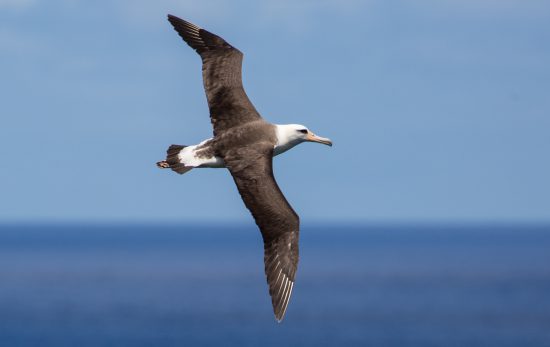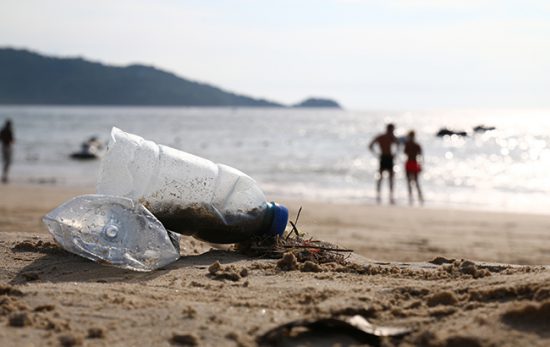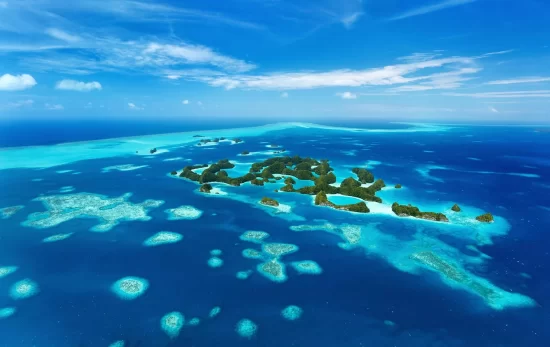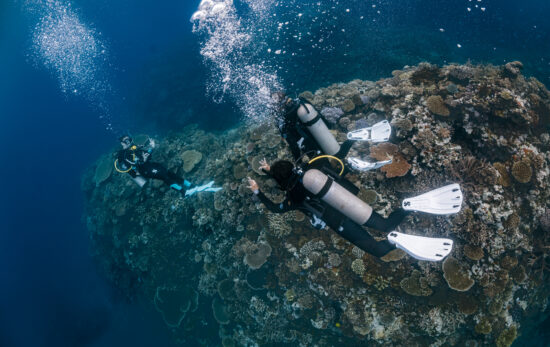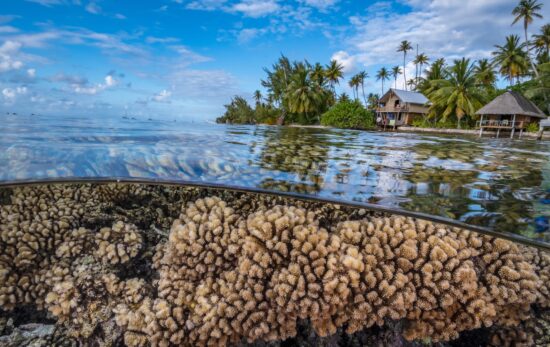As divers and ocean-lovers, we are well aware that the health of coral reefs is declining globally due to a wide variety of threats – from rising ocean temperatures, to overfishing, and pollution. In order to give corals, the reefs they form, and the organisms that rely on them, a chance at survival, groups around the world are working to restore coral reefs. As part of PADI’s bold blueprint for ocean action, one of our main goals is to accelerate coral reef recovery and restoration with the help of our global community of Torchbearers.
Put simply, coral restoration is the growing and planting of corals on a reef in order to help coral reef ecosystems regain their health. While there are many different techniques used by organizations worldwide, most operations follow the same basic methodology. First, small samples of healthy coral are taken from the reef. Those small fragments are then placed in a calm, shallow water nursery to grow. Once the coral fragments reach a certain size in the nursery, they are securely outplanted on the reef so that they can grow and thrive over time.
Coral restoration efforts around the globe are seeing positive results – with outplanted corals successfully growing, and even reproducing – helping to increase the health of precious coral reef ecosystems. Want to get involved? There are ample opportunities for volunteer divers to help tend to the coral nurseries, outplant coral fragments on the reef, and monitor the health of outplanted corals over time in tropical locations worldwide.
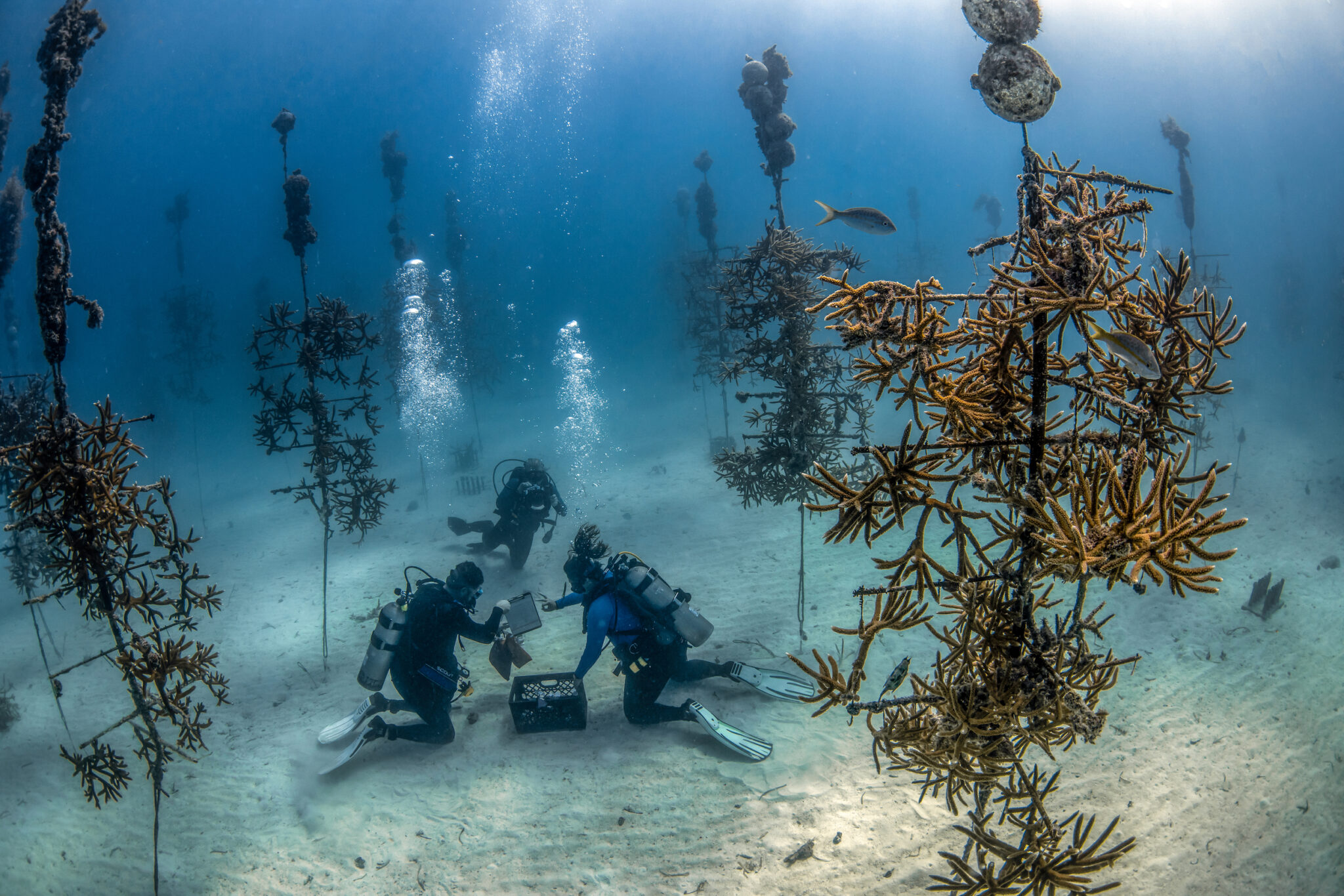
Founded by the ‘father of coral restoration’ Ken Nedimyer in Key Largo, Florida in 2007, Coral Restoration Foundation is the largest coral reef restoration organization in the world. Since 2012, they have outplanted more than 74,000 corals on the Florida Reef Tract. If you live in the South Florida region, or plan to visit for an extended period of time, Coral Restoration Foundation welcomes volunteer divers to help with a myriad of tasks all year round. Additionally, they invite volunteer divers from around the world to participate in their annual Coralpalooza event on World Oceans Day (June 8th).
In the Caribbean, Reef Renewal Foundation Bonaire invites volunteer scuba divers to help restore Bonaire’s coral reefs – including during their annual ReeFiesta event on World Reef Day (June 1st). In Australia, Reef Restoration Foundation is the Great Barrier Reef’s first coral restoration initiative – seeking volunteer divers to help reach their goal of planting 25,000 new corals on the reef by 2021. In French Polynesia, Coral Gardeners invite interested divers to be directly involved in their efforts to plant healthy corals on the reefs of Moorea. In Kenya, REEFolution seeks hearty volunteers to help collect healthy corals, place them in nurseries, and outplant them on their local Indian Ocean reefs.
No matter where you are in the world, we encourage anyone that’s interested in volunteering as a diver to help with coral restoration efforts – find an organization near you, or in an area of the world that you really care about, and get involved!
To learn more about coral restoration and ways to get involved, check out the Coral Restoration Consortium – a high level community of scientists, managers, practitioners, and educators dedicated to collaborating on coral restoration best practices. The aim is to enable coral reef ecosystems to adapt and survive the 21st century and beyond, with the belief that it is imperative that we all work together to address the urgent crisis facing coral reefs worldwide.
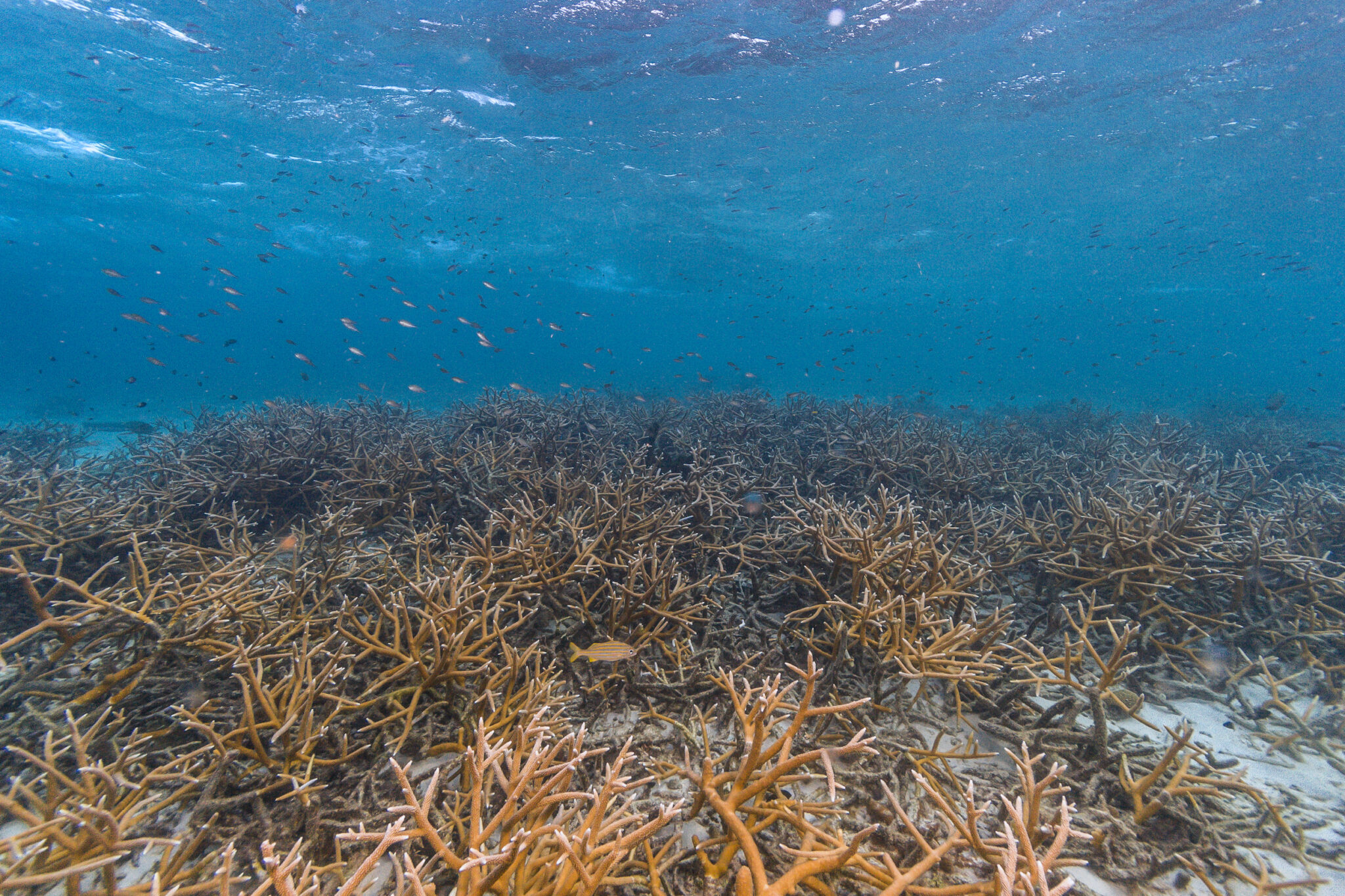
Before you volunteer with one of the numerous coral restoration organizations around the world, we recommend taking the PADI Coral Reef Conservation Specialty Course. This course will help you appreciate the complexity of coral reef habitats, better identify coral species, and teach you about ways to help protect and conserve these incredibly important marine organisms.

